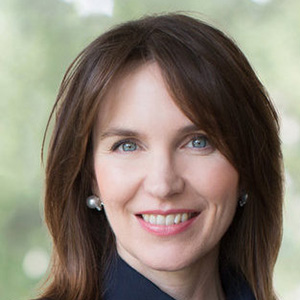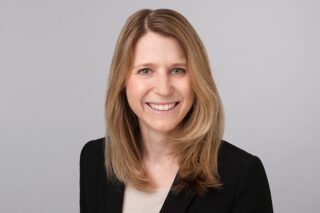






What is the EMBA HSG Community and why is it important?
It’s our community that makes the EMBA HSG programme a truly transformational learning experience. We learn through the innovative and diverse perspectives of our fellow community members. Hence, in order to further develop our programme, I am convinced that we need to integrate it in an engaged life-long learning community. We aim to cultivate a learning culture that is embedded in a strong community spirit, since it is the personal connections with fellow students, alumni and lecturers that enrich the EMBA HSG learning journey.
At the EMBA HSG we cultivate a culture of trust, mutual respect and cooperation. The EMBA HSG Community embraces all International EMBA and EMBA students, alumni, faculty and staff. Identifying as an EMBA HSG, and being part of the EMBA HSG community, means being open for new perspectives, meaningfully connecting and learning from fellow executives, and being committed to proactively support others. In the end, the community is not only about being there for fellow classmates, but also for past and future generations.
Some wonderful examples already exist, for instance where current students organize an insightful company visit for their fellow classmates and other EMBA cohorts. Going forward, we want to encourage those existing engagements and strengthen our programme with community building activities that foster connections among all EMBAs, especially between current students and alumni. We kick off our ambitious goal with the organization of the first Homecoming event for the entire EMBA HSG Community, where we hope to see many of our students and alumni.
Describe your efforts to enhance the EMBA HSG learning journey?
Well, it is amazing to have a great team of dedicated programme managers and faculty who are committed to create the best possible learning journey for our students. Our team is full of energy to take on the challenges of further developing the programme, for which we have started many initiatives.
Our main goal is to foster high-quality learning by nurturing the engagement of our students. From research we know that engaged students experience more meaningful and high-quality learning, and that is exactly what we would like to see in our programmes! As everyone engages differently with the programme, we focus on various dimensions of engagement, such as cognitive, social and behavioural engagement. We see our personal connection to students and faculty as a strong added value to the learning journey, and this ties back to our efforts to foster an engaged EMBA HSG community.
The EMBA HSG is about striving for excellence. We constantly question, debate and reflect on our curriculum to ensure that it remains relevant and challenging for executives and it supports their development journey. We want to ensure that our courses focus on topics that matter for society and business, and address relevant issues that lead to future-oriented and integrative solutions.
Our responsibility for the future of learning: Interview with Rosabeth Moss Kanter
At Thinkers50 in London, Annelies Van Herck had a unique opportunity to interview Rosabeth Moss Kanter (Professor at Harvard Business School and author of “Think Outside the Building”) to get her insights on our responsibility for the future of learning.
In order to address the needs of society, how should we change our MBA programmes to be more effective and have more impact in society?
There are lots who say that the impact of those programmes on society has been negative, and that is a shame. How should we change it?
Especially for Executive MBA programmes, one can say that it is especially hard because we tend to think that our students and their companies are our customers. Then it becomes difficult to question some of the premises on which the customers operate. So instead, we need alternatives. We need to find examples of places, people, companies, … who do it differently and it really works. I think to have only one model of capitalism, to have only one model of organizations, to have one model of leadership, gets us in trouble. We need to explore alternatives. We should be doing more cases, more studies of people at the grassroot level who accomplished miraculous things without resources. We should be studying the people who manage to succeed without the odds, and who come from different systems. We should not just try that our students get better at what they do, so they can climb the career ladder, but put those great MBA brands to work to find solutions for the problems of the world.
 EMBA HSG Impact, News
EMBA HSG Impact, News
 EMBA HSG Impact
EMBA HSG Impact
Do you have any questions or require further information? We will be happy to help.